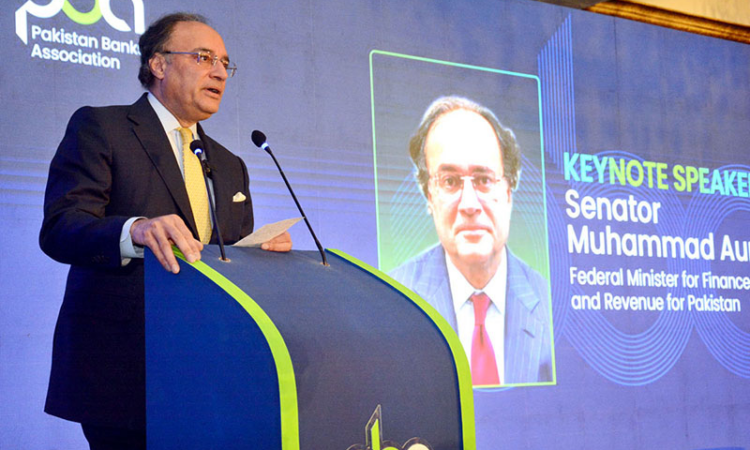Karachi, February 24, 2025: Finance Minister Muhammad Aurangzeb has assured that the upcoming federal budget will provide tax relief to the salaried class, emphasizing the government’s commitment to reducing their financial burden.
Speaking at the Pakistan Banking Summit 2025, he stressed the need for pro-business policies to stimulate economic growth and urged swift financial and privatisation reforms.
Aurangzeb highlighted the urgency of privatising state-owned enterprises (SOEs), confirming that three electricity distribution companies (DISCOs) will soon be privatized. He added that the government is also tackling excessive spending to improve fiscal discipline.
Addressing the persistent issue of smuggling, he announced that strict border controls have effectively halted the illicit export of sugar to Afghanistan—a significant development in curbing economic leakages.
The inaugural Pakistan Banking Summit, hosted by the Pakistan Banks Association, brought together key stakeholders, including bank presidents, policymakers, and international delegates.
Aurangzeb noted that emerging economies have made significant progress in the past 25 years, urging Pakistan to fully leverage its economic potential. He emphasized that most global finance ministers prioritize production growth, and Pakistan must adopt policies that empower the private sector.
During his address, the finance minister outlined improving economic indicators, stating that the current account has recorded a surplus in the first seven months of FY 2025. Inflation and interest rates have declined, easing pressure on businesses and consumers.
Structural reforms are advancing, particularly in the digitalization of the Federal Board of Revenue (FBR).
He further highlighted the need to enhance regional trade policies to ensure economic stability and increase exports.
Aurangzeb reported a 90% reduction in tax-related corruption following the introduction of faceless tax assessments—a key reform aimed at minimizing human intervention in tax collection.
He also described the implementation of agricultural income tax as a major structural reform, with provincial finance ministers set to review its enforcement.
To enhance policy formulation, he announced the establishment of an Advisory Board to provide strategic direction and prevent unnecessary speculation ahead of budget announcements.
The finance minister emphasized the need to diversify exports beyond textiles, urging higher domestic investment to attract foreign capital. He expressed optimism that Pakistan’s credit rating will improve soon, potentially reaching a single-digit category.
While acknowledging the positive role of mid-sized banks in SME financing, he urged larger banks to expand their contributions, assuring full government support.
Aurangzeb confirmed that a three-day IMF technical mission is currently in Pakistan for a review on climate financing, with another IMF delegation expected next month to discuss the bailout package.
He also reaffirmed that Pakistan International Airlines (PIA) will be privatized this year, stressing that the government is fully committed to ensuring the process is completed successfully.
Pakistan is strengthening trade ties with Azerbaijan and Turkey, with Aurangzeb emphasizing the country’s focus on solidifying its economic position in the region.
Regarding trade with India, he described it as a geopolitical issue, stating that the government is monitoring the situation closely.
He also reiterated the government’s strict stance on border monitoring to eliminate smuggling, ensuring that economic reforms remain on track.
Aurangzeb emphasized that sustainable growth is impossible without tax base expansion, adding that Pakistan has immense potential in mineral exports. The government, he said, is actively working to develop this sector as part of a broader economic strategy.
Expressing confidence in Pakistan’s long-term economic stability, the finance minister assured that ongoing reforms will enhance the country’s global reputation in the coming years.








